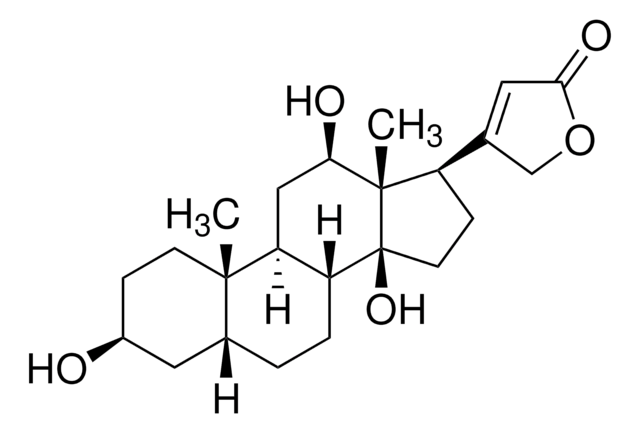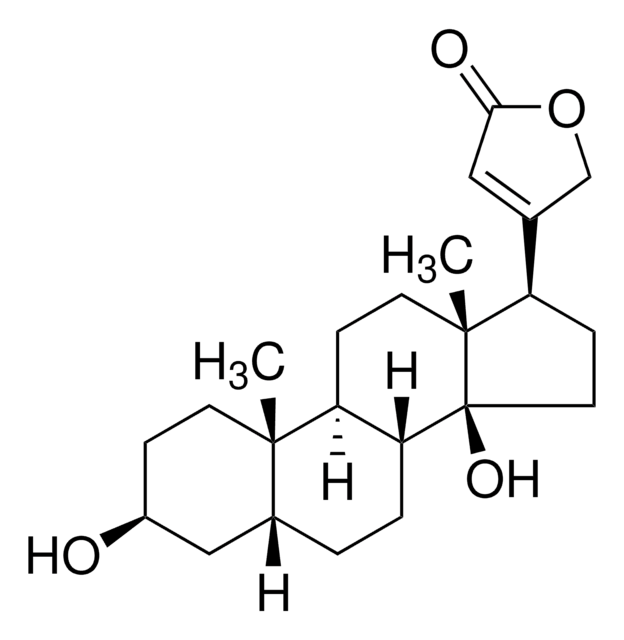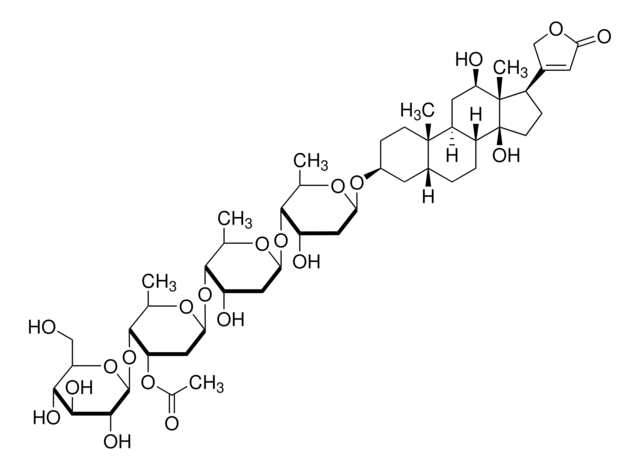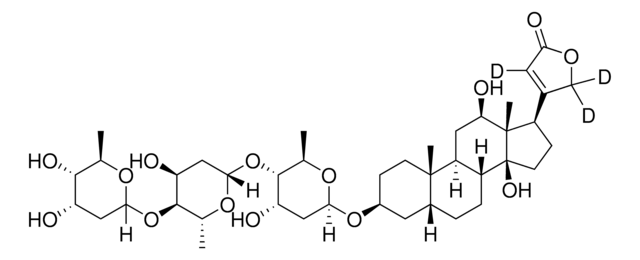Y0000640
Digoxigenin
European Pharmacopoeia (EP) Reference Standard
Synonyme(s) :
3β,12β,14β,21-Tetrahydroxy-20(22)-norcholenic acid lactone, 3β,12β,14-Trihydroxy-5β,20(22)-cardenolide, 5β,20(22)-Cardenolide-3β,12β,14-triol, Lanadigigenin
About This Item
Produits recommandés
Qualité
pharmaceutical primary standard
Famille d'API
digitalis
Fabricant/nom de marque
EDQM
Pf
222 °C (lit.)
Application(s)
pharmaceutical (small molecule)
Format
neat
Chaîne SMILES
C[C@]12CC[C@H](O)C[C@H]1CC[C@@H]3[C@@H]2C[C@@H](O)[C@]4(C)[C@H](CC[C@]34O)C5=CC(=O)OC5
InChI
1S/C23H34O5/c1-21-7-5-15(24)10-14(21)3-4-17-18(21)11-19(25)22(2)16(6-8-23(17,22)27)13-9-20(26)28-12-13/h9,14-19,24-25,27H,3-8,10-12H2,1-2H3/t14-,15+,16-,17-,18+,19-,21+,22+,23+/m1/s1
Clé InChI
SHIBSTMRCDJXLN-KCZCNTNESA-N
Vous recherchez des produits similaires ? Visite Guide de comparaison des produits
Description générale
Application
Conditionnement
Autres remarques
Produit(s) apparenté(s)
Mention d'avertissement
Danger
Mentions de danger
Conseils de prudence
Classification des risques
Acute Tox. 1 Inhalation - Acute Tox. 1 Oral - Acute Tox. 2 Dermal
Code de la classe de stockage
6.1A - Combustible acute toxic Cat. 1 and 2 / very toxic hazardous materials
Classe de danger pour l'eau (WGK)
WGK 3
Faites votre choix parmi les versions les plus récentes :
Certificats d'analyse (COA)
Désolés, nous n'avons pas de COA pour ce produit disponible en ligne pour le moment.
Si vous avez besoin d'assistance, veuillez contacter Service Clients
Déjà en possession de ce produit ?
Retrouvez la documentation relative aux produits que vous avez récemment achetés dans la Bibliothèque de documents.
Les clients ont également consulté
Notre équipe de scientifiques dispose d'une expérience dans tous les secteurs de la recherche, notamment en sciences de la vie, science des matériaux, synthèse chimique, chromatographie, analyse et dans de nombreux autres domaines..
Contacter notre Service technique







